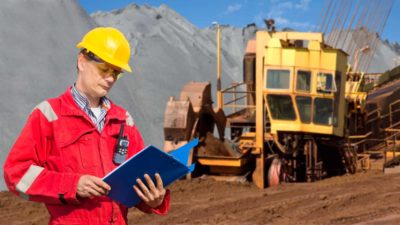When bought at the right price, ASX industrial shares can be solid investments. These companies are typically well integrated into the economy and provide an important service to households, businesses, and often the larger community.
One of the attractive things about businesses in the industrial sector is that they typically trade on a lower price/earnings (P/E) ratio than some sectors, such as technology. But, industrial stocks can still display pleasing qualities such as operating leverage, when things are going well.
When researching companies to invest in today, I look for those with a compelling long-term future and low valuations.
With that in mind, I'm watching the two industrial stocks below that have seen valuation declines.
Lindsay Australia Ltd (ASX: LAU)
The Lindsay share price has declined 27% since March this year, making this business very interesting to me.
The ASX industrial share provides national transport, logistics and rural supply services to the agriculture, horticulture and food-related industries. The company has an "end-to-end solution" for farmers, such as expert agronomy advice, with various services along the supply chain to help farmers grow, package, transport and distribute their produce throughout Australia and the world.
Lindsay is an important part of the Australian economy and transport chain, but it had a difficult FY24 with adverse weather, multiple rail outages and challenging macroconditions. Even so, the company reported like-for-like operating revenue growth of 6% to $717 million and total operating revenue growth of 18.9% to $804.4 million.
The company's underlying net profit fell 17% to $30.4 million, impacted by the higher net finance and depreciation charges of $10 million relating to the $128 million of capital expenditure that the company has invested over the last two weeks.
However, I think operating conditions can improve, its investments will help deliver stronger returns over time, and the company's recently launched transformation program will help improve efficiency and reduce costs.
At the current Lindsay share price, the ASX industrial share is trading at 9x FY24's underlying earnings, with a grossed-up dividend yield of 8% (including franking credits).
Johns Lyng Group Ltd (ASX: JLG)
Johns Lyng specialises in providing repair and restoration services for properties damaged by insured events such as impact, weather, and fire.
The company has a wide range of clients, including large insurance companies, commercial enterprises, local and state governments, body corporates and owners' corporations, and retail customers.
Considering the ASX industrial share's long-term growth prospects, which I'll get to in a moment, I think the company's share price decline of more than 20% since 26 August is attractive and has been overdone.
Johns Lyng sometimes generates sizeable earnings from assisting with the recovery following catastrophe events, but that activity has dropped off over the last couple of years. However, I think it'd be short-sighted to think that the division's earnings are permanently reduced. Hurricane Helene was damaging in the United States recently, and the next 12 months could be unpredictable.
The company's underlying earnings continue to grow at a good pace, which makes me believe the current valuation is appealing for the long term. The company continues to expand its presence in Australia, the US, and New Zealand. I'm optimistic about the possibility of further geographic expansion in the coming years.
The industrial ASX share is expecting its 'business as usual' (BAU) revenue to rise by 25.9% and that BAU operating profit (EBITDA) could rise by 16.3%.
According to the Commsec forecast, the Johns Lyng share price is valued at 22x FY25's estimated earnings.









